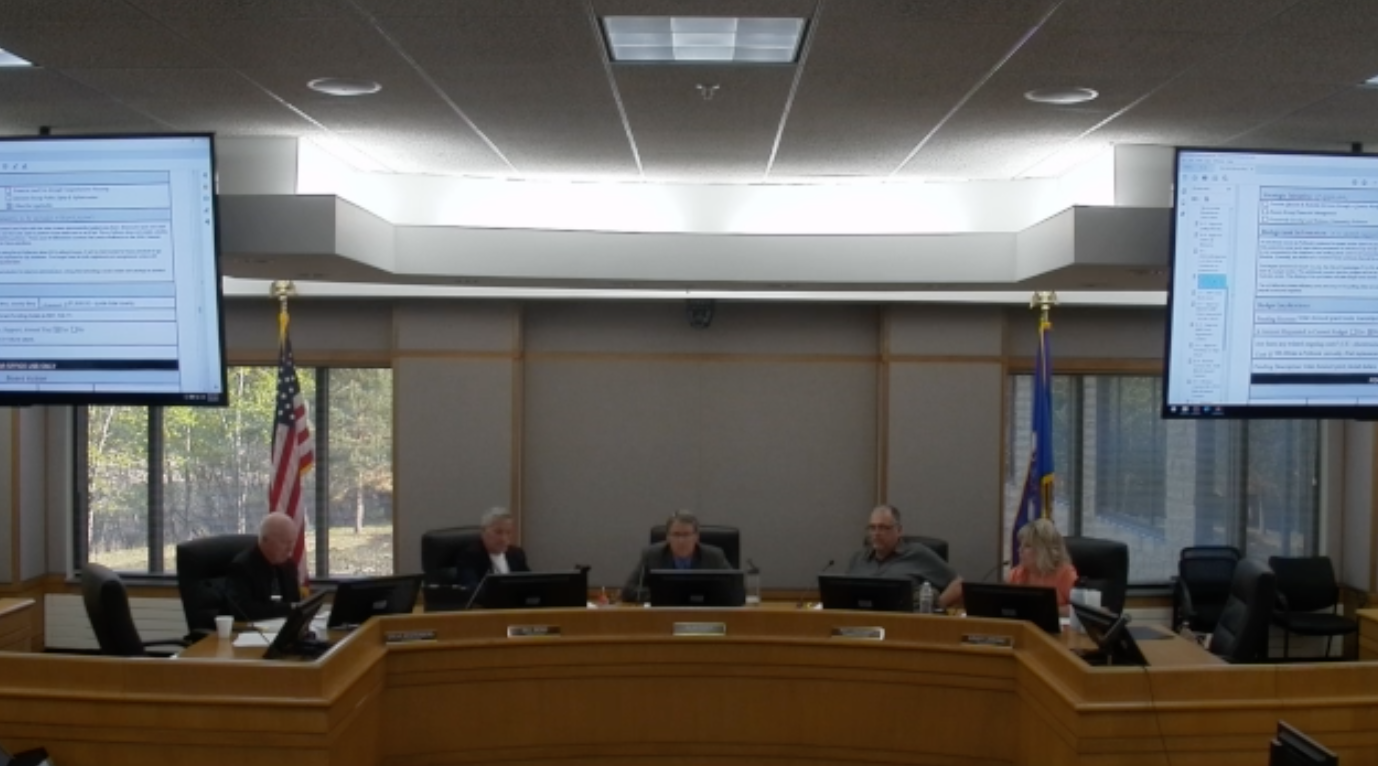Isanti County Votes No on Electronic Poll Pads

Four-zero (4-0) with one (1) abstaining
In 2016, one Minnesota mayor breached the security of the KNOWiNK iPad, sometimes called an electronic poll pad or roster, during the product’s demo to his city, St. Bonifacius. This led his council to reject the leasing contract through Hennepin County, who had purchased them, and St. Bonifacius was the only municipality in Minnesota’s largest county by population to continue to use paper poll books to check in and register voters on election day.
Nine years later, on the evening of May 6, 2025, not just a city but a county, Isanti County, has voted No to an offer from KNOWiNK (Video: agenda item begins at 18m49s in recording; motion at 32m26s, and vote at 32m45s).
After discussion, a simple motion was made to not use electronic poll pads at this time. With five (5) commissioners, the vote was four-zero (4-0) with one (1) abstaining. Even the two commissioners representing the City of Cambridge, where the electronic devices had been used since 2018, voted against using electronics, in part because the people they represent don’t want them.
It’s easy to understand why. The KNOWiNK iPads, although EAC-certified, are internet-connected via cellular, which allows for voter data to travel outside of the precinct during election day, as well as for new data to flow in. While this is now legal, it is unnecessary. Ostensibly, the data coming from the Statewide Voter Registration System, managed by the Office of the Secretary of State, helps to on election day prevent a voter who has already voted absentee from voting in-person in their precinct, blocking a double-vote, as well as stopping someone from voting in more than one precinct. But when a door is opened, data connection-wise, especially with internet-connected electronics, things that are unwanted or improper may also enter the equation, which erodes basic trust in the overall system.
The only way to stop questions about design, security, and reliability pouring into state, county, and city offices is to use paper poll books, which are self-evidently more secure, especially from a scalability standpoint, as one of two Anoka County commissioners stated in February 2025, while also voting No (Anoka County overall voted in favor four-two (4-2) with one (1) absent) to a repurchase agreement, since the iPads only last as long as Apple chooses to support the current model.
While KNOWiNK boasts about their fancy new EAC certification and their multi-state coverage, and while the current local supporters of the St. Louis-based company can temporarily talk up the more-than 7,000 devices currently deployed in over 70 counties (of 87 total in Minnesota), their claims of shorter wait times, more accurate data, and lighter workload for staff seem to be losing their persuasiveness.
At a recent Isanti Town Officer meeting, after a 30-minute presentation by the Isanti County Auditor, with support from the Chisago County Auditor, as well as staff asking friendly guiding-type questions from the audience, a team of three ACEIT members was given about 10 minutes to share their perspective, a rare moment, as in recent years different opinions about the overall electronic voting system have at times been less then welcome in government settings.
Isanti County’s decision did not come in a vacuum. To the south, in Anoka County, the City of Oak Grove was the first municipality, in the entire state, to cancel its agreement with Anoka County (from whom it leases the KNOWiNK iPads) in September 2024. This led to a response from the Anoka County Elections Department which persuaded the city council to take caution and despite the cancellation, still use the electronic devices in the 2024 general election.
The letter, along with the state’s subsidy via VOTER Accounts, combined with the similar talking points disseminating from—likely—the Office of the Secretary of State—might lead a casual reader to wonder, Why does Steve Simon, most if not all of the county auditors, and much of the county-level staff, seem to want these so much?
Four of the commissioners laid out simple arguments that their local governing bodies do not want e-poll pads. Doesn't this exemplify how representative government should look like?
While the City of Cambridge may yet decide to pursue their own purchase of the KNOWiNK iPads, should they decide to continue using them, if they do end up succeeding, then it will only underscore the precise argument that ACEIT has been making to the city councils and the county commission in Anoka County, which is that it’s really up to the cities whether they use iPads or paper poll books—the technical arguments for this can be found, in part, here.
For those who are interested in the details, the VOTER Accounts, which are tax-payer funded monies from the Office of the Secretary of State, can be, among other things, used to buy equipment/software such as the KNOWiNK iPads, or to pay additional election judges, if needed, or temporary staff, if needed, for any workload concerns when returning to paper poll books for voter check-in and registration.
With the Minnesota Legislature effectively mandating electronic tabulators in 2023 (requiring continued use if previously used in a precinct) and making it very difficult to hand count in 2024 (requiring election workers to immediately seal ballots at the close of polls), the choice to use paper poll books might be one of the last truly impactful decisions about elections available for every local town supervisor, city councilmember, and county commissioner. History will show whether they seized the opportunity.
Erik van Mechelen is the writer of three books about electronic voting systems.
Member discussion